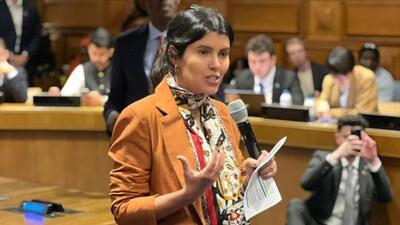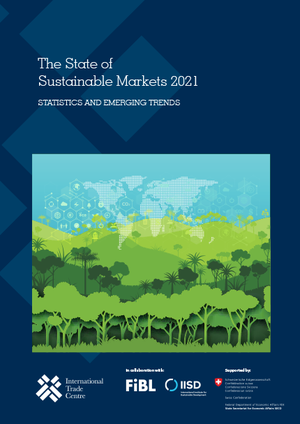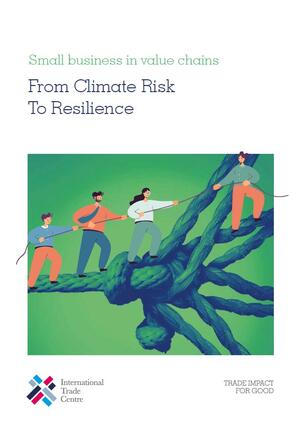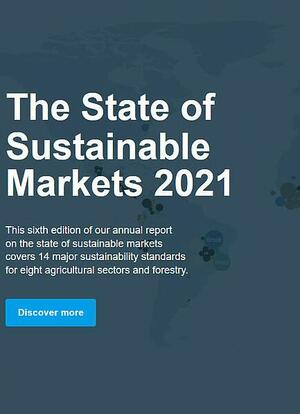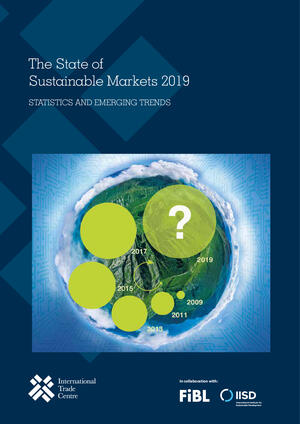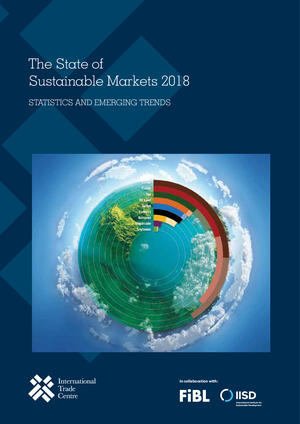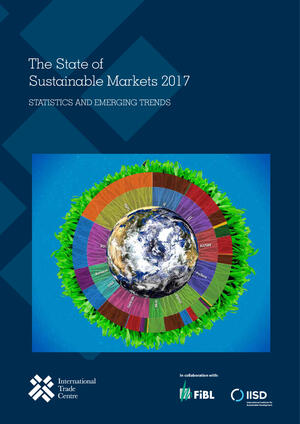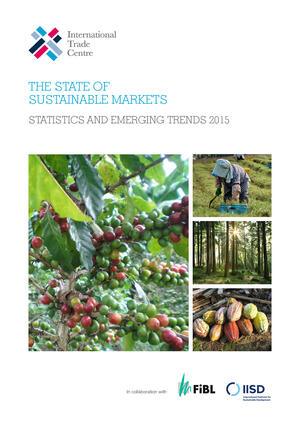


Sustainable trade and investment
Trade, and accompanying economic growth, can have a significant impact on the environment. Developing countries can align their trade and investment policies with green economy policies to ensure they effectively address environmental challenges and benefit from a circular economy.
Micro, small and medium-sized enterprises (MSMEs) also need to adapt to effectively engage in trade on a national, regional and global scale. As such it is important that domestic frameworks are updated, and stakeholders are aware of opportunities and can take advantage of them.
ITC can help countries adopt and strengthen the legal and regulatory frameworks of their trade and investment policies to integrate green growth and harness trade as a way towards a sustainable and inclusive economy.
Green trends in trade negotiations
Trade negotiations on the links between trade and environmental sustainability are ramping up, for example through the WTO Trade and Environmental Sustainability Structured Discussions (TESSD) at the multilateral level, and the inclusion of sustainable trade provisions in regional and bilateral trade arrangements.
ITC offers:
- Information-sharing and advisory sessions at the multilateral, regional and country levels to ensure stakeholders are up to date on multilateral developments relating to trade and environment, including on fisheries subsidies, TESSD, fossil fuel subsidies, environmental goods and services, and trade provisions in multilateral economic agreements (MEAs);
- Support on negotiating positions and preparing submissions to feed into the trade, investment and environment dialogues, taking into context the regional and domestic priorities and building on the views of micro, small and medium-sized enterprises (MSMEs);
- Technical assistance to align regional and domestic regulatory frameworks with multilateral and regional commitments on sustainable trade provisions.
Green domestic policies to access regional markets
Large economies are increasingly adapting environmentally-centred regulations to meet green commitments under the Paris Agreement and related conventions. These regulations can have implications on market access for exporting countries seeking to access such markets.
ITC provides developing countries with:
- Technical guidance to stakeholders at the regional and country level, on policy and regulatory green trends in regional trade arrangements, trade related measures in National Adaptation Plans adopted by countries, and potential impacts on market access and reforms;
- Advisory support to maximize chances of successful trade negotiations through the development of toolkits and technical briefing notes on green trade in trade negotiations and agreements;
- Building up the capacity of business associations and related private sector stakeholders to develop policy positions on sustainability issues to contribute to trade negotiations and domestic policy reforms;
- Capacity building for stakeholders on the link between trade and environment through dedicated courses on trade and environment, including sessions for the private sector on leveraging the benefits of green trading arrangements and the greening of regional and global value chains.
Integrating green trends into industrial strategy
The transition towards a more environmentally-friendly trade agenda has important implications for overall trade, industrial and investment frameworks. Industrial policy is evolving towards integrating climate change and environmental considerations, and is an important consideration for countries to boost competitiveness and leverage the opportunities available in green trade.
ITC can help through:
- Advisory sessions on an economy-wide approach to modern green trade, investment and industrial policies inspired by principles of a circular economy, support to trade policy instruments such as investment, competition, public procurement, e-commerce, and intellectual property;
- Mapping exercises of policy and regulatory instruments across specific value-chains and necessary policy and regulatory reforms to build in green elements.
Business advocacy on sustainable trade and investment
Engaging the business community when formulating trade agendas is essential to foster the economic interests of the private sector, which contributes to domestic economic growth and national development.
With the scope and complexity of trade rapidly growing, it is important that the private sector is able to effectively engage in the new topics and issues being built into trade negotiations and policy.
ITC is able to:
- Organize targeted workshops for business support organizations to develop policy positions and engage in policy advocacy on sustainable trade and investment policy issues;
- Develop toolkits for business support organizations to support business advocacy efforts on sustainable trade and investment policy.








